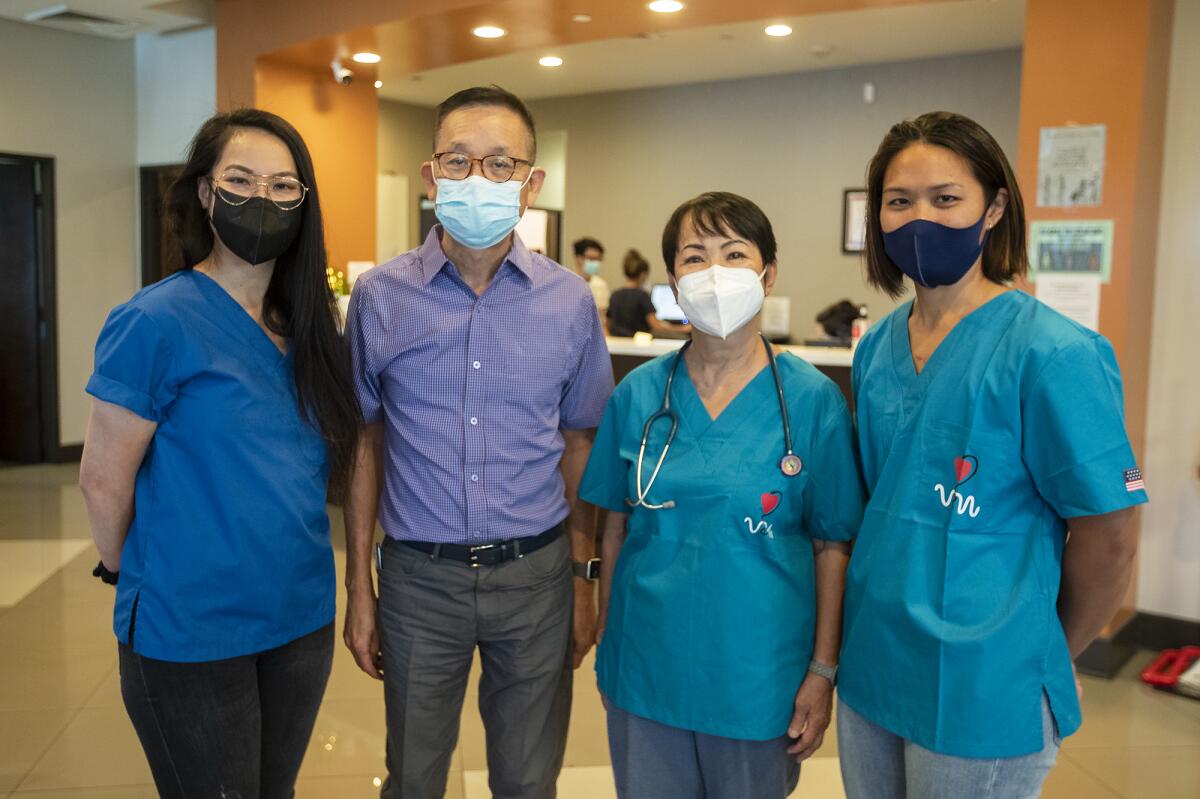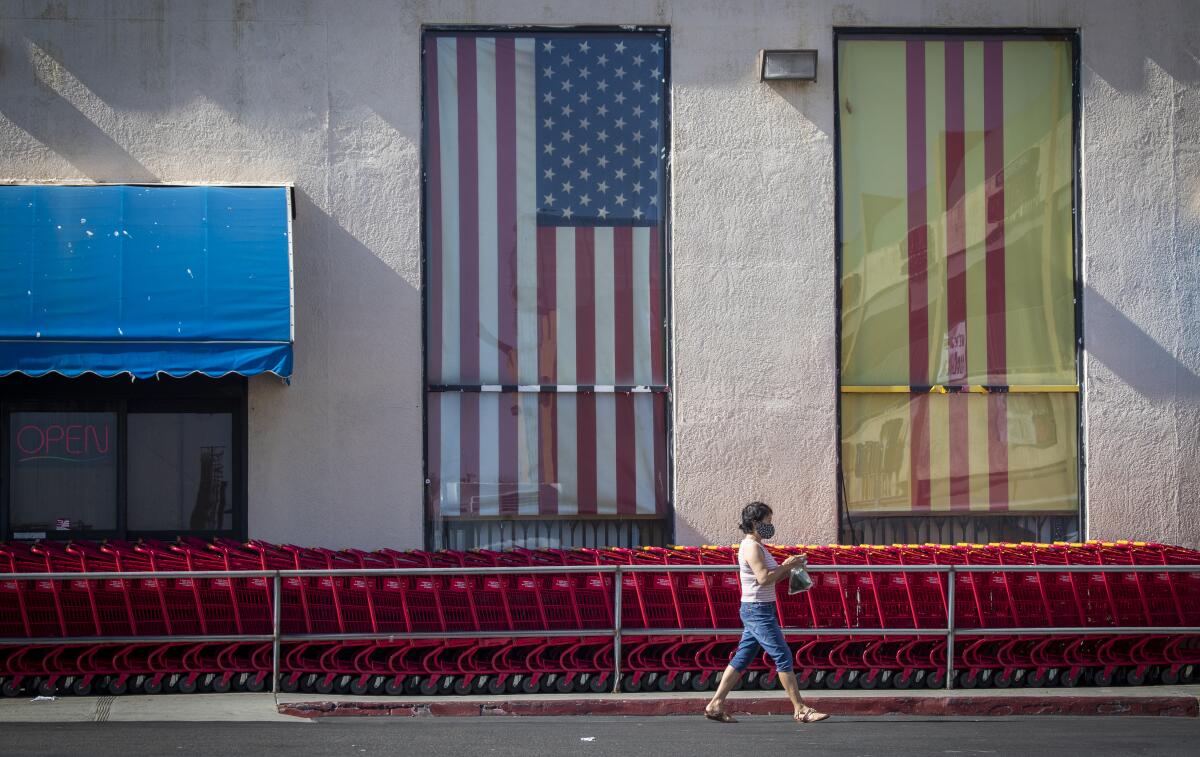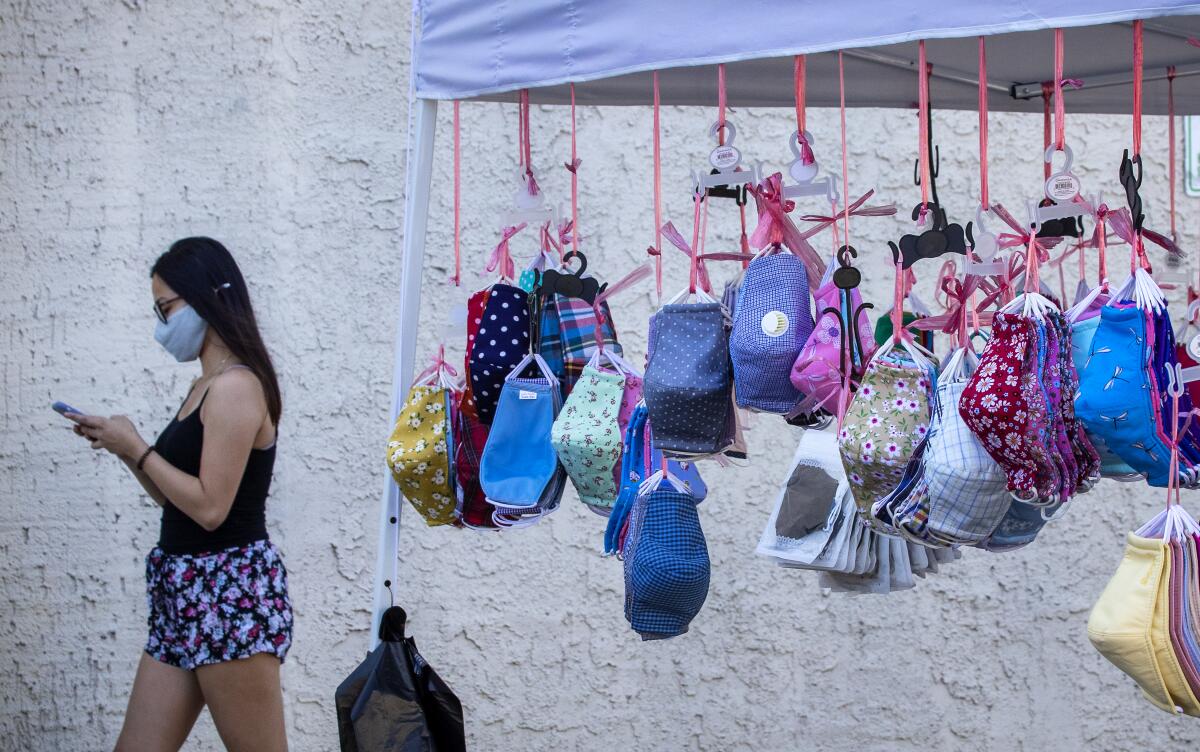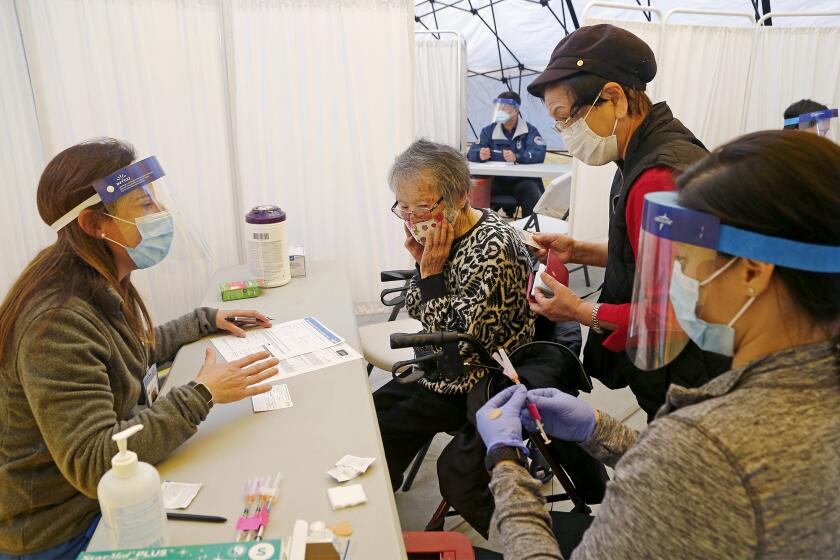As COVID-19 wreaks havoc in Vietnam, Orange County nonprofits provide needed support

- Share via
As Vietnam contends with a massive COVID-19 outbreak, two Orange County organizations are trying to help the country by providing supplies and outreach.
For much of the pandemic, Vietnam was spared the worst due to an effective public health strategy. But the ultra-contagious Delta variant of the coronavirus has torn through the country.
Prior to the variant’s arrival in April, the country had recorded less than 3,000 cases. It’s now up to 563,676, according to the World Health Organization.
Quynh Kieu, who founded the Fountain Valley-based Project Vietnam Foundation in 1996, said the virus is spreading like a wildfire because only about 7% of people in Vietnam are vaccinated.
“The area is so infectious that even if you use traditional quarantining and tracing of the people who are affected, it’s impossible to stop, unless you have vaccines,” Kieu said. “Vietnam has few vaccines.”
Quyen Le, director of public health programs at Project Vietnam, mentioned that wearing masks in Vietnam is widely accepted, which shows the virulence of the Delta variant.
Project Vietnam regularly went on medical mission trips to Vietnam, but the pandemic has prevented the nonprofit’s members from traveling to the country. That has made it more challenging to assist the country, but the group is still doing all it can before it can begin traveling back next year.
In the meantime, the group is maintaining its presence in the country, providing personal protection equipment, or PPE, and offering online educational sessions.
“So it has been difficult, but if there’s a will, there’s a way,” Kieu said. “We try and continue to assist very actively. So for example, yesterday, I just shipped three pallets to Vietnam. And we’re in the process of doing some further shipping containers. So we can help in either way.”
The nonprofit recently took part in a conference with more than 100 Vietnamese physicians to share knowledge and best practices surrounding the treatment of COVID-19.
“Some of the concepts that we traditionally used to take care of people with critical needs in the hospital are not valid, they have to be adapted and changed,” Kieu said. “We would like Vietnam to learn from the mistakes that we did in the beginning.”
The group is also continuing to offer webinars of one of its longstanding programs in Vietnam that trains pediatricians to address the needs of developmentally challenged children.
Two UC Irvine studies revealed disparities in infection and mortality rates of ethnic and racial groups during the first and second surges of the pandemic.
For this work, Project Vietnam partners with children’s hospitals in Vietnam.
Project Vietnam is part of the Vietnamese American Non-Governmental Organization, or VANGO Network, another Fountain Valley-based group that has been helping with community development efforts in Vietnam. The nonprofit was formed in 2004 by two dozen organizations that decided to form one united group. Kieu serves on the board of the VANGO Network.
Thien-Nhien Luong, president of VANGO Network’s board of directors, said the nonprofit is largely sending PPE to badly hit provinces in Vietnam, including in Thừa-Thiên Huế, where the group’s office is located.
The group is also putting together “COVID kits” for the community. Those differ a bit from kits they distributed last year that contained educational material and food because some provinces suffered from food shortages.
“People were going hungry,” Luong said. “Right now our food is OK in some provinces, so we focus on a COVID kit where we have educational and prevention brochures, and PPE with disposable masks, hand sanitizer and over-the-counter medication.”
Luong said she is also focusing on reaching out to local leaders to educate them so they can play a role in finding local solutions to help their communities in Vietnam.

During the pandemic, Project Vietnam and the VANGO Network have been assisting the Vietnamese community in Orange County.
Luong said the VANGO Network held information sessions on Zoom, distributed a lot of PPE locally and manufactured and paid for aerosol intubation boxes, which were shipped to Orange County hospitals.
The network also worked with OC Mask Masters, which donates handsewn masks, mask extenders and face shields to hospitals, healthcare workers, first responders and essential workers.
“The Vietnamese American community in Orange County is so resilient and so strong and so generous,” Luong said.
Neither California nor the county has data just on the Vietnamese residents of Orange County. Instead, the population is included in the county’s Asian American data. According to the state, Asian Americans have received 21.2% of the vaccines administered in the county and make up 18.2% of the vaccine-eligible population.
Kieu said the Vietnamese community is twice as likely to be vaccinated than the general community because it is respectful of health issues and the safety of its families.
“The Vietnamese community is very eager to be vaccinated,” Kieu said. “There are still some young people who think they are invincible and don’t want it, but mostly the proportion of Vietnamese Americans who are vaccinated is very high.”
Kieu is heavily invested in educating the local Vietnamese community. She said she appears on television to provide updates on the pandemic and address other questions that may be lingering in the community. Project Vietnam also produces weekly podcasts in Vietnamese. Project Vietnam also provided PPE to dozens of local nursing facilities.

Last year, Project Vietnam conducted a months-long project testing 1,900 people in the Vietnamese American communities of Westminster, Garden Grove and parts of Fountain Valley and Santa Ana. It was among one of the first testing efforts in the country to target a specific ethnicity.
Project Vietnam has worked with UC Irvine’s Institute for Clinical and Translational Science, which aims to improve health-based research. It is one of 11 sites in California that are a part of the National Institutes of Health Community Engagement Alliance initiative. The institute received funding to work with groups in the county who assist vulnerable populations. It has provided funding to Project Vietnam and Madison Park Neighborhood Assn. in Santa Ana in order to foster community education and outreach and to identify barriers that stand in the way of providing health services, such as vaccine hesitancy.
Robynn Zender, the community health research manager at the institute, said the institute chose Project Vietnam because the organization does a good job at building and maintaining trust with the local Vietnamese community, which is in need of resources.
“People think of Orange County as this wealthy, upscale beach community,” Zender said. “There’s just this whole other part of Orange County, which is severely underserved and in need of resources.
“Project Vietnam does a very good job of building relationships that are just critical for anybody being able to be effective at getting services and needs to the community.”
All the latest on Orange County from Orange County.
Get our free TimesOC newsletter.
You may occasionally receive promotional content from the Daily Pilot.







